Cocoon II
I didn't expect to spend a month in a cocoon, but nature and metamorphosis have an innate wisdom. [Two older
So here I am, bound in a cocoon. Like so many other plot twists in my life, the wide-open doorway to Bruce 2.0 turned out to be a pinhole.
I hadn’t planned on a pupal stage to my metamorphosis, but here I was.
I learned that a caterpillar cuts a swath of destruction by eating one hundred times its weight until it is too bloated to continue. Then it hangs itself up to dry until its skin hardens into a chrysalis.
I had been munching life experiences for decades, so maybe it was my time to hang out to dry — but I was more inclined to resist. And this is where it gets trippy. Entomologists discovered imaginal discs inside the caterpillar that serve as the blueprint for a future flying insect with wings. Let’s call these discs a blueprint for the future. The intermediate stage between larvae and butterfly serves as the “imaginal realm.”
The term “imaginal realm”... is traditionally understood to be a boundary realm between two worlds... “Where the two seas meet” is a beautiful Sufi metaphor to convey the essence of what actually happens here. ~Cynthia Bourgeault
A caterpillar is a slacker, just like you and me. Its immune system resists its “new you” but eventually fails from the stress of resisting. The discs become imaginal cells and then build the new butterfly by feeding on the soupy meltdown of the caterpillar’s body. Ugh.
Hospice Atlanta failed to give me a blueprint, but I soon realized that my manic energy had been fighting off the cocoon, trying to snuff out the reorganization. Cognitive scientist Donald Hoffman puts this meltdown into perspective:
“Eventually, the immune cells of the caterpillar get overwhelmed, and then much of the structure of the caterpillar gets liquefied. Now, that cannot be pleasant — liquefaction while you're still alive! Then, having those raw materials turn into something else that you have no prior concept of. How could a caterpillar know what it means to fly and how to be a butterfly?”1
My liquefaction triggered a B-movie horror, so I flipped on the homeopathic antidote: Cocoon, the 1985 classic where a bunch of old farts regain their youthful virility by swimming in a pool of alien cocoons.
It’s a ridiculous plot, but I wanted to shriek like Don Ameche, diving into a pool of alien cocoons and yelling, “I feel tremendous; I’m ready to take on the world!!”
COCOON SCENE: Mary, one of the wives, confronts Ben, her cocoon-swimming husband. She is not amused by his alien-juiced, boner-ific antics.
Ben: “So you think… we're cheating nature?
Mary: “Yes.”
Ben: “Well, I'll tell ya, with the way nature's been cheating us, I don't mind cheating her a little.”
But Mary had it right. Opening a cocoon before its time, even a little, is cheating. It’s a cuckoo premise, but the movie — liquefaction and all — gave me a perverse solace.
Here’s the problem. I had never liquefied before and could not know if my speed-grieving was on track. I consulted my Five Steps:
Grief Step ONE - “The Universe Didn’t Make a Mistake”
Step one is to search your storyline for serendipities. You want proof that God’s guidance system hasn’t malfunctioned. During Cocoon month, my New Year’s vow (saying yes to all invitations) delivered an odd mix of experiences:
Experience 1 — My friend Debra invited me to an orthodox Passover Seder. I was quickly transported to a strange Hasidic world with black coats, beards, sidelocks, and hats. Despite being authentic Jews, Debra and I sat at the goyim table with a bunch of curious evangelicals hoping to juice up their Lent. To my surprise, it was a rich and magical evening.
Experience 2 — Every five years, I seem to bump into Jonathan and Wendy, and to my surprise, they called while I was pouring gas into the lawnmower.
“Want to go to Madras Mantra for some Indian food?” Wendy asked.
“When?”
“Like right now, we’re pulling up.”
“Absolutely. I’ve been waiting for such an invite!”
It started like a normal Indian meal until a kippah-topped orthodox Jew appeared with my uthappam and saag paneer. I expected Henny Youngman to step out with a platter, wisecracking, “A little dal-stuffed kishka today?”Experience 3 — Cavit, the imam of a local Turkish mosque and one of Karen’s former chaplain students invited me to a Ramadan Iftar dinner. “Oy,” I thought. “Hasidic Jews, Indian food, and now Iftar.” I felt enormous resistance, but I hopped in the car and drove 45 minutes to the suburban home of a Turkish family I did not know. After a multi-course meal, strong black tea at 9:30 pm and high-octane Turkish coffee at 10 pm, I regaled my hosts with tales from my book Rumi Comes to America. They were enchanted and insisted I spend the night, but I had a legitimate out with a dog at home. When I finally got under the covers long after midnight, I let the caffeinated buzz liquefy whatever was left of my larval stage.
Experience 4 — My neighbor Ella asked, “Do you like to float?”
“In tubes down the river?”
“No, a flotation tank in saline solution,” Ella explained. “We could go together.”
I wanted to say, “I’m looking to limit my spiritual experiences,” but I offered my stock reply, “Thank you. I’ve been waiting for such an invite!”
Rather than write a snarky review, I pulled one from Reddit:
“Basically, you pay a stupid amount of money to get naked and shoved into a bathtub full of salt in pitch-black darkness to cure whatever ails you. Bad. Idea.” The reviewer went into detail about her nightmarish encounter with childhood demons bubbling up from the tank. She concluded: “I thrashed around in the water trying to get to the side of the pool, inhaling the salty water, gagging uncontrollably, and feeling as if I was about to pass out.”
My experience was closer to, “This can’t be good for my dry skin.”
Feeling emboldened, I skipped straight to Grief Step FIVE - “Spread Your Wings”
The next Saturday night, I spread my wings by inviting Kaira, a neurologist and member of my Grief Group, to a romantic cooked dinner. I let the New York Times guide the evening:
Tarragon-Cognac Chicken: Adapted from Christiane Baumgartner via her daughter, Florence Chapgier, “The sophisticated French flavors of brandy, butter, and tarragon season this golden-skinned roast chicken, adding panache to what is otherwise an easy and straightforward recipe.”
I tend to choose first-time recipes with a high chance of failure but to be safe, I study the reader notes, including this one:
“I decided to pour some Calvados cognac over the roasting chicken, and after I closed the oven door, it was blown open by a fireball that crossed the kitchen. Fortunately, nothing was damaged, including the chicken.”
Oolala! Looking to double down, I selected an Indian side dish:
Aloo Palak: “Onion, tomatoes, ginger, garlic, and garam masala pack a fiery punch for the humble potato and spinach.”
Kaira was an expert Indian cook, so I might have stepped into a trap. As it turned out, the dish sparked a lively conversation on the difference between garam masala and my chosen goda masala. (Ha, Kaia never heard of goda masala). I was tickled to see her light up as she sniffed the goda masala “with an aromatic coconut sweetness unique to Maharashtrian cuisine.” So, we happily went off-recipe with the goda
I was still on the 12-month no-dating plan, but after the meal, while sipping pinot noir, Kaira asked to move to the porch to enjoy the fragrant spring night.
Remember how that Turkish coffee liquefied my resistance? The pinot had the same effect. To my disconcerted surprise, I had NO IDEA HOW TO BE in a potentially romantic encounter or what level of emotional vulnerability was appropriate (call it the occupational hazard from being out of the dating pool for 40 years). I threw caution to the wind, cranked the feeling dial, and connected heart to heart.
“Let’s plan on this again,” Kaira announced, pulling out her iPhone with businesslike certitude as I lavished undivided attention. “How about May 27, June 24, and again July 1?”
This seemed promising — and very efficient — so I pulled out my iPhone and plugged in the three dates.
I’m writing from my notes, and I can find no record of these future dates. I do remember Kaira being very clear that after losing a beloved husband to cancer, plus having two previous marriages go belly-up, she was “done with all that.” I wrote later, “I’m so fucking confused.”
(Hey, gals. Since I’m searching for Bondo, help me understand how women go impossibly long distances without replenishment — without deep intimacy in a love-parched world. Are y’all part dromedary and store can 80 pounds of Bondo in a single hump.)
The cocoon month of April had one more event, billed as “The Memorial Celebration of Karen’s Life and Calling.”
Karen’s boss, Theodora, had been intent on planning a memorial service — nearly five months after the fact(!) I had already moved into the cognac phase of my mourning, so it seemed wildly out of sync. But dutifully, I prepared a multimedia remembrance and steeled myself for an uncomfortable two hours.
When I arrived, the room quickly filled until more chairs had to be set. Two of Karen’s chaplain students had driven from Nashville, and another two flew in from Boston.
Until this event, I never fully recognized Karen’s impact. One after another, her chaplain students shared how she touched them:
“Her demeanor put me at ease instantly.” - Sarah
“I will never forget her ability to get me to open up and speak about my life, my feelings, and what was on my mind.” - Angela
“During my interview, Karen said, ‘I sense you're uncomfortable.’ I sheepishly smiled, ‘I really need to use the bathroom.’ She laughed out loud, saying, ‘One thing you will learn from me: it's really important to take care of yourself.’" - Shelby
“I always include your emails in my achievements; It feels like I'm sending them to an inbox in heaven.” - Noah
“Karen had a way of listening intently. She'd give me her signature smirk, indicating that she knew there was more to be unearthed. That she knew, that I knew, that she knew, was enough to bring it out of me.” - Nicole
The final recollection shook me to the core:
“I asked her how she was so calm about her illness,” Marjorie shared. “She succinctly told me that she had no fear of death and welcomed the experience.”
Until that moment, I had no idea that my beloved was so fearless of death. Marjorie added one more note:
“The only part that was unsettling was leaving Bruce and her boys.”
I closed my eyes and breathed — mainly to ward off tears. When they opened, out of the corner of my eye, I noticed someone in the back of the room.
It was Suho, Karen’s colleague and nemesis. She had played a key role in the mental-emotional catastrophe of Karen’s final year.
I could see Suho’s discomfort, presumably dragged to the memorial by her colleagues. I wondered how she was handling two hours of Karen praise or how it squared with her image of Karen as the Oppressor. Cognitive dissonance is the tension people feel when what they witness is at odds with their story. More simply, Suho looked pale, as if she was seeking an escape hatch on a sinking boat.
Then it was my turn.
I was billed as the main event. I knew how to perform as an extrovert, but this was Cocoon month, and my deepest grief was still looking for the pinhole out.
So, I asked Henny Youngman, and he was quite clear. “Take it from me; some well-timed schtick always clears the air.” I grabbed the podium and confessed, “I’m liable to get emotional.” I poked around on the lectern and deadpanned my best Henny delivery:
“Is there a call button if I need a chaplain?”
The roar of laughter pulled me out of the cocoon and opened my heart. Or maybe, I liquefied and sprouted wings. You can’t force these things, but isn’t that the wisdom of grieving?
Now it’s time for a true confession.
At every stage of this journey, I have clung to hope — that Bruce 2.0 is just around the corner. I clung to Bennett’s Objective Hope, Havel’s Historic Hope, Zelensky’s Justice-Prevails Hope, and Alexei Navalny’s Long Hope. My contribution is “God-is-Fucking-with-My-Hope Hope.” He (or She) teases me — the endless string pull of a toy mouse in front of a cat.
I think Dante nailed Hope when he posted the inscription to the gate to Hell: Lasciate ogne speranza, voi ch’intrate” — Abandon Hope All Who Enter.
Dante was a badass. Born to noble ancestry and the political class, he was exiled from Florence in 1302 after refusing to pay a fine. Later, he was threatened with execution at the stake or even beheading if he returned.
His solution? He spent the next 13 years writing the Divine Comedy. Only a badass snubs political exile, beheading, and titles the adventure Divine Comedy.
In the Inferno, with the poet Virgil as his guide, Dante encounters “Abandon Hope” like a road sign — imagine the Hell Department of Transportation warning, “Once you cross the threshold, there is no hope of escape” — no pecking your way out of this pupal prison, Buddy.
In a moment of R. Crumb absurdity, Dante and Virgil encounter fortune-tellers who trudge through Hell with their heads on backward, unable to see what’s ahead. Their sin? They sought to see the future through forbidden means.
Did I mention that I mainlined a 24/7 playlist into my brain during that first terrible month after Karen passed? The self-titled playlist: Fortune Teller. Yikes.
Scholar Peter Brand observed:
“Such a punishment functions not merely as a form of divine revenge, but rather as the fulfillment of a destiny freely chosen by each soul during his or her life."2
Henny Youngman would have been more succinct: “Shut up already; you signed up for this.”
Or, in my words: “The universe didn’t make a mistake.”
Dante understood that we sign up “freely” for the biggest, baddest karmic rollercoaster…
…the one where backward fortune tellers are banned from projecting into the future.
This is the downside of Reality. We are forbidden to see a future that doesn’t exist — but oh, the joy of reading tea leaves and believing it will all get better. Years ago, Karen had a profound dream during her darkest twenties. She saw her future self as a wise old woman with white hair wrapped in a bun. Her older self encouraged the forlorn twenty-something, “Hang in there; you have no idea what is in store.”
The dream turned out to be true, but it was reading her soul’s potential — in that moment — and not some flash-forward, pre-destination movie scene.
But it gets weirder.
The next day, I received an email from a European student of Reshad Feild who wrote, “I’ve been reading Carlos Castaneda. I wanted to give these books away but couldn't resist rereading some of them.”
“Really?” I wondered. “Castaneda? Wow.”
Karen taught me to think like an assayer and to test every opportunity that comes into your world for gold or pyrite. Nine years ago, Karen “outwitted” her diagnosis by remaining vigilant, assaying every source of healing that came down her path.
If someone said, “Coffee enema,” coffee would course through her colon the next day. If another friend warned, “A coffee enema is the worst possible thing you could do,” that would end that. Karen called it “following the breadcrumbs.”
I think of it as found art — the artist’s ability to find merit in objects found along the way.
So now, fifty years after reading Castaneda in college, Don Juan has returned to my world. But this time, Carlos Castaneda carries the taint of scandal.
Carlos Castaneda’s third book, Journey to Ixtlan: The Lessons of Don Juan, was accepted as his doctoral dissertation by the UCLA Anthropology Department in 1973 — the same year I graduated from UCLA with a degree in film. Soon after, Castaneda disappeared from public view, leaving a legacy of 12 books of Yaqui mystical knowledge and selling more than 10 million copies in 17 languages. If you do the math, every new-age Baby Boomer was spiritually reared by Don Juan.
I did a quick Google search to see where Castaneda stood fifty years later.
I found plenty: “A Yaqui Way of Nonsense; a pseudo-profound, deeply vulgar pseudo-ethnography,” and “20th century's most successful literary trickster” Time Magazine discovered that Castaneda was from Peru even though he claimed he was from Brazil. Castaneda lied extensively about his past, making him the literary equivalent of today’s political gaslighters. The most relevant comparison is Rep. George Santos, a drag queen named Anthony from Brazil, among many other ruses.
Going further down the rabbit hole, I learned how several women in Castaneda’s inner circle disappeared. In February 2006, a skeleton found in Death Valley, California, was identified through DNA analysis as Castaneda's adopted daughter.3
How did a towering fraudster like Castaneda milk the moment and move the zeitgeist of our culture? Even today, Simon & Schuster slots Castaneda’s books into non-fiction while academics and critics scream they’re fiction. This is familiar territory. I have known spiritual teachers, a famous poet, an Italian film producer, and a chief marketing officer who lived large lives with effortless deception. I won’t even mention the 47th President.
Shakespeare would have had no problem: All the world’s a stage, and all the men and women merely players. It’s all in the Script.
So, with Castaneda’s Journey to Ixtlan in hand, I needed to assess whether it was Source or sorcery. Castaneda was accused of plagiarizing back in the day, but leap forward and you will discover how the Large Language Models that power today’s trillion-dollar AI industry, plagiarize the entire Internet as if it were original thinking.
I found the best source to assess Yaqui “pyrite” was Sam Keen’s long-form interview in Psychology Today (Dec. 1972). The interview began with Carlos sounding like an indignant George Santos:4
SAM KEEN: As I followed Don Juan through your three books, I suspected, at times, that he was the creation of Carlos Castaneda. He is almost too good to be true — a wise old Indian whose knowledge of human nature is superior to almost everybody's.
CARLOS CASTANEDA: The idea that I concocted a person like Don Juan is inconceivable.
He is hardly the kind of figure my European intellectual tradition would have led me to invent. The truth is much stranger. I wasn't even prepared to make the changes in my life that my association with Don Juan involved.
And like Rep. George Santos, Castaneda keeps fighting, gets defensive, and tangled. Yet, his depictions seem grounded in lived experience. When he talked about being a warrior, I felt my inner Yaqui resonate:
CASTANEDA: One day, Don Juan asked me: "Do you think you and I are equals?" I was a university student and an intellectual, and he was an old Indian, but I condescended and said: "Of course we are equals."
I should digress that I met my first spiritual teacher, Mory Berman, an old Jew, on UCLA’s Janss Steps. I’m already feeling affinity with Carlos.
Don Juan said to me: "I don't think we are equals. I am a hunter and a warrior, and you are a pimp. I am ready to sum up my life at any moment. Your feeble world of indecision and sadness is not equal to mine."
“Well, I was very insulted and would have left, but we were in the middle of the wilderness. So I sat down and got trapped in my own ego involvement. I was going to wait until he decided to go home. After many hours, I saw that Don Juan would stay there forever if he had to. Why not? For a man with no pending business, that is his power. I finally realized this man was unlike my father, who would make twenty New Year's resolutions and cancel them all. Don Juan's decisions were irrevocable…
“So I went over and touched him, and he got up, and we went home. The impact of that act was tremendous. It convinced me that the way of the warrior is an exuberant and powerful way to live.”
I could never fully trust my teacher Reshad, either. But the spiritual world does a brisk trade, sending us men of mystery whose job is to tie a seeker’s critical thinking into a pretzel. Reshad taught me that spiritual knowledge demanded “conscious stealing” — the ability to extract what you need from the fabric of life. Conscious stealing does not tut-tut about spiritual con men or their ethics. You are on the hunt for knowledge in whatever forms it appears.
So now I was at a crossroads.
The breadcrumbs led me to the scandalous Castaneda. With found art in hand, assay complete, I opened Journey to Ixtlan:
Focus your attention on the link between you and your death, without remorse or sadness or worrying. Focus your attention on the fact you don't have time and let your acts flow accordingly.
Let each of your acts be your last battle on earth.
Only under those conditions will your acts have their rightful power. Otherwise, for as long as you live, they will be the acts of a timid man… At moments of power, the world of ordinary affairs does not exist, and nothing can be taken for granted.5
I had witnessed each of Karen’s battles — including her last on this earth. She taught me to focus my attention on the link between my life and my death — and I understood that link as Hope.
But now I bowed to Don Juan’s warrior, Dante’s fortune tellers, and even to Václav Havel. As I severed the strands of hope, a power entered as I bowed to the present moment.
Instead of Bruce, I became Brujo. I centered my wits on the present moment and killed off the young ingenue I had hoped would grace my Big Next Act. Hope had been my companion, and now I was alone.
It was too much. Maybe I’m not ready to become a warrior. Sitting alone in my cabin, enveloped by darkness and serenaded by a chorus of cicadas and crickets, I sought solace. I could find solace from the Internet. Go ahead. Put me in a 12-step as a user — the rush of digital media acts as a wedge between my fear of loneliness and my birthright — the purity of Being.
I found a YouTube of some old Henny Youngman.
What is it about this guy that helps me feel my humanity? The real Henny untucks his violin and seems to riff off Don Juan’s most famous line: Death is our eternal companion:
“I had an uncle,” Henny blurts with his trademark shtick. “He was a psychic. He knew the exact day he was going to die… the warden told him.”
My heart filled. What can I add after that? How about this from Guillaume Apollinaire, the forefather of Surrealism? Like Castaneda, Apollinaire kept his background clouded in speculation but was most likely the illegitimate child of a Polish woman and an Italian army officer. In the spirit of today, Apollinaire died in the 1918 flu pandemic.
“Now and then, it’s good to pause in our pursuit of happiness and just be happy.”
~ Guillaume Apollinaire
Thank you, Henny. Thank you, Guillaume. Thank you, Don Juan.
https://batgap.com/donald-hoffman/
Brand, Peter; Pertile, Lino (1999). The Cambridge History of Italian Literature (2nd ed.). Cambridge University Press. pp. 63–64.
https://www.salon.com/2007/04/12/castaneda/
https://www.nagualism.com/carlos-castaneda-interview-psychology-today.html
CASTANEDA, C. (1972) Journey to Ixtlan. New York: Simon & Schuster


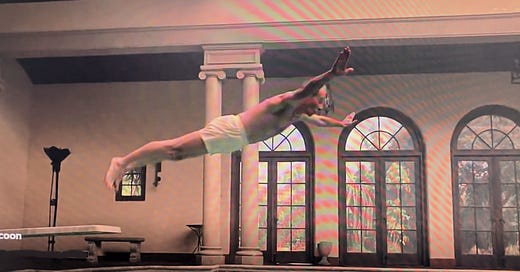


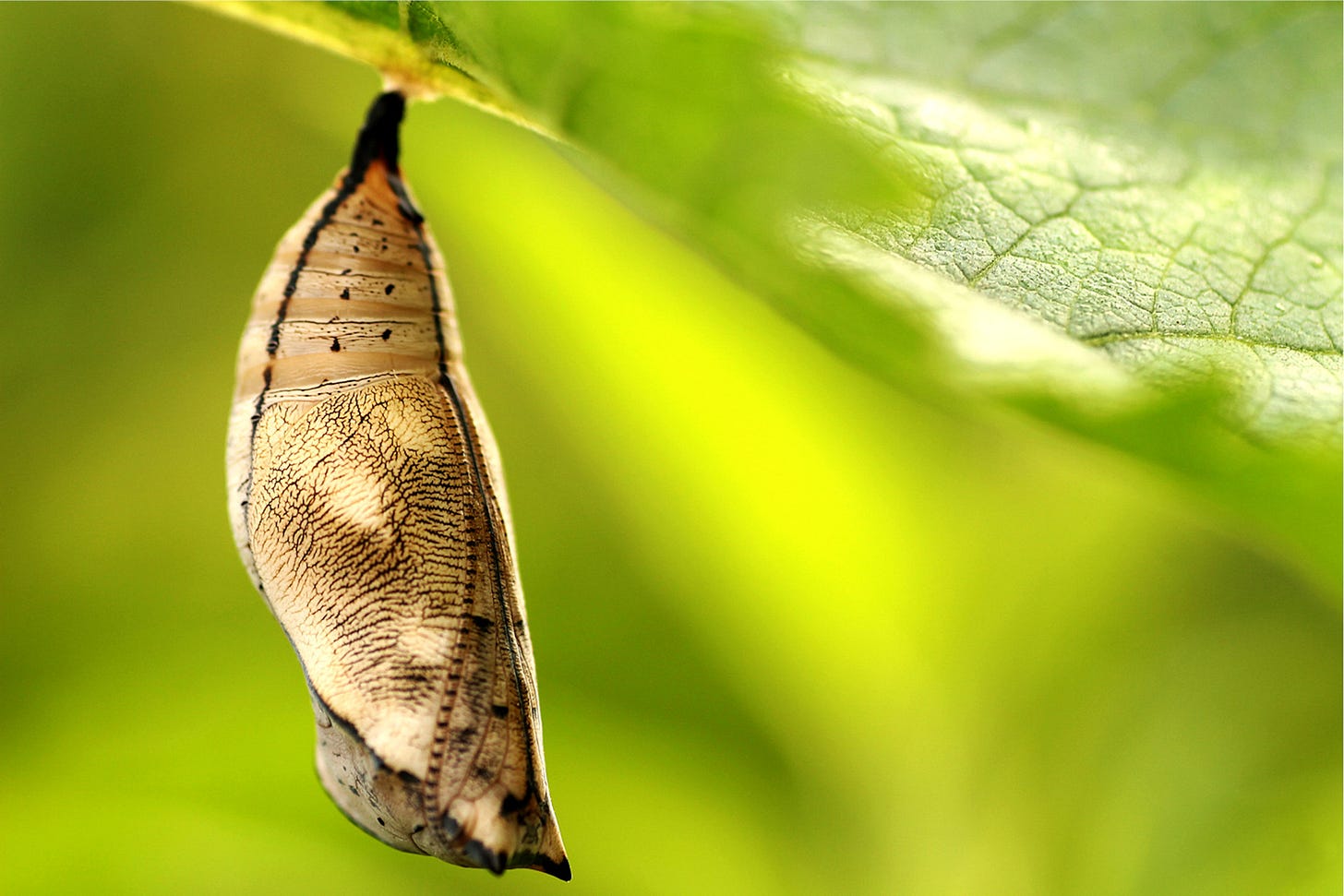
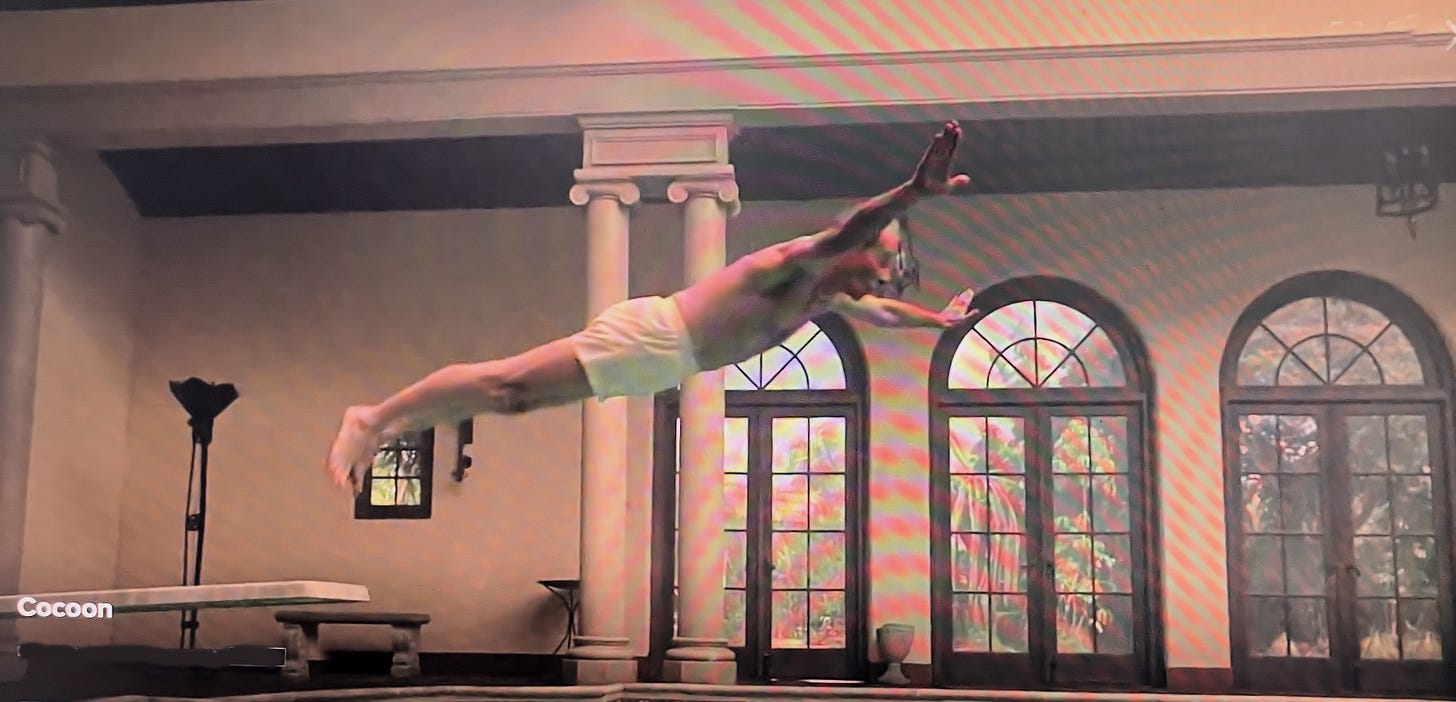
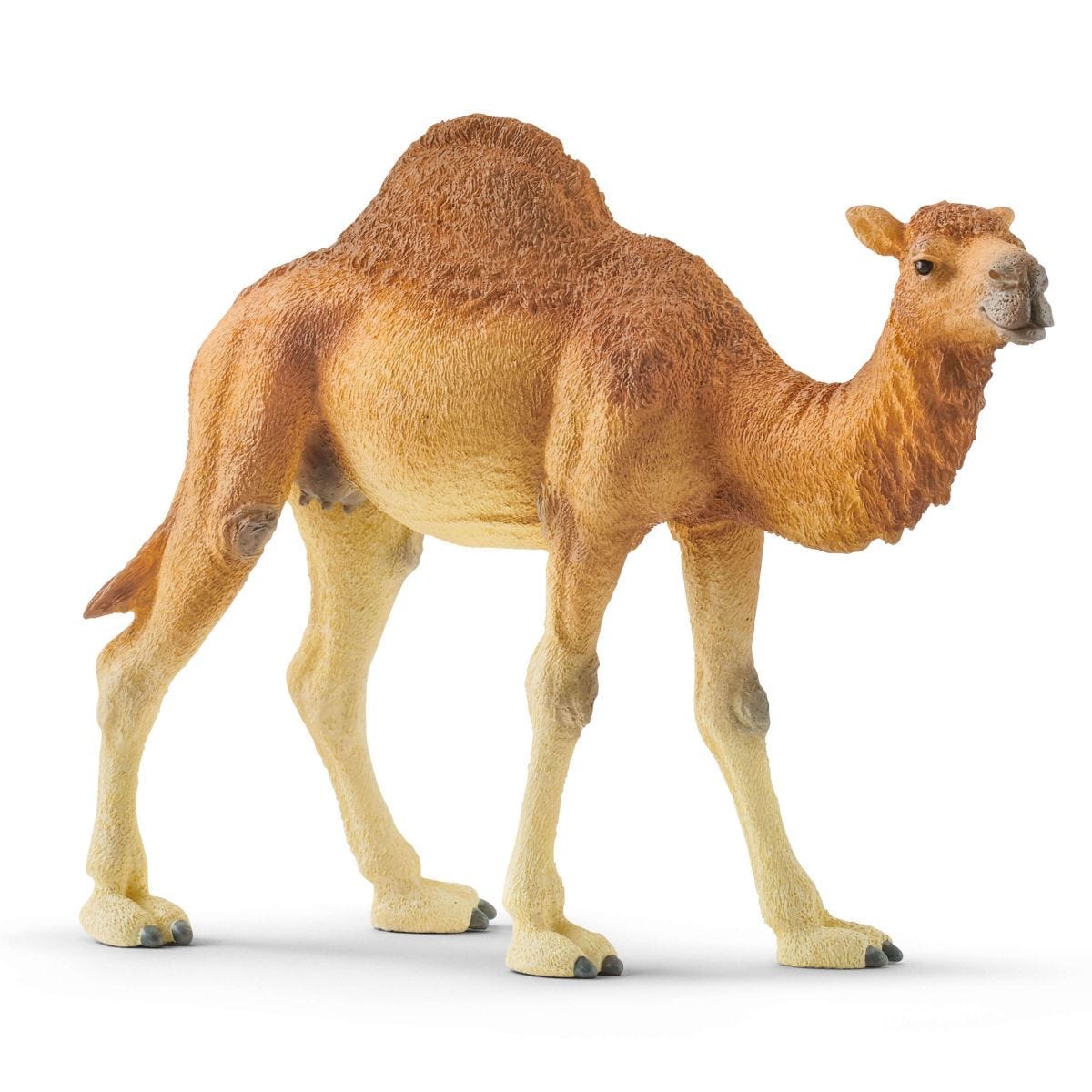



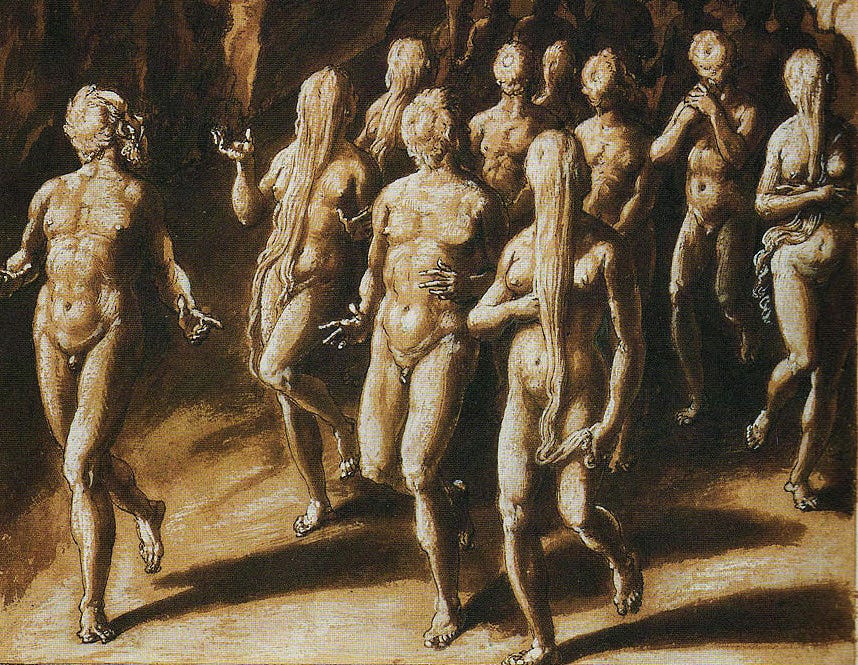


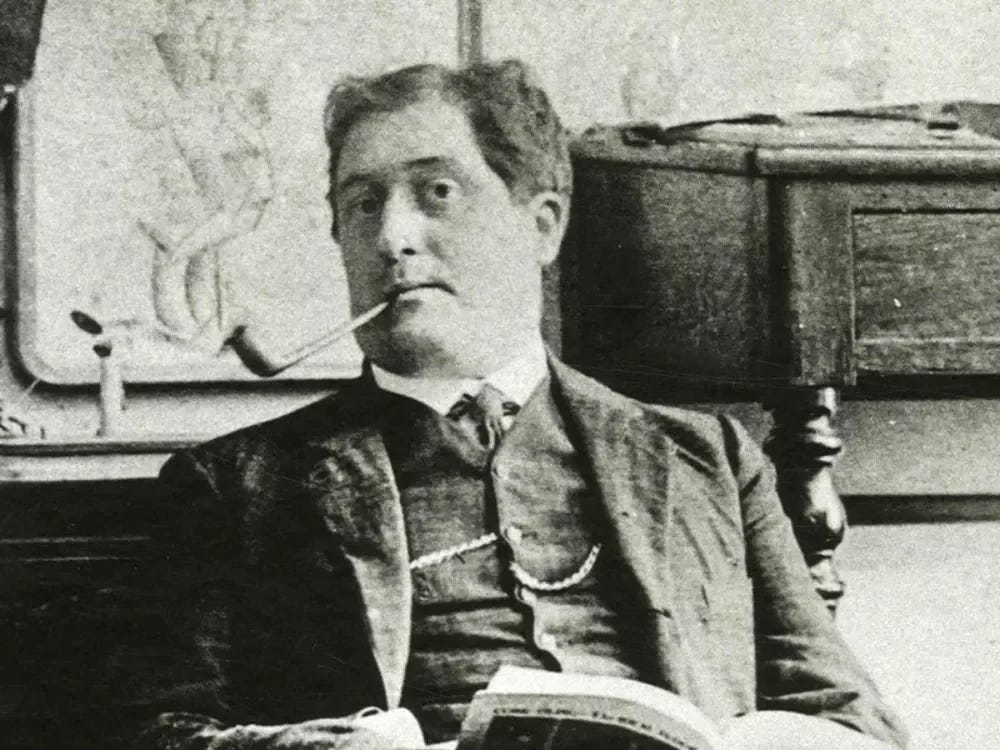
And now I see it, after so many years. We don't the the time or energy to hope for the future. At best, we can be present with what is, what is now, in this instant. But as one teacher of mine has taught: "Call now, cooperators are standing by". Our lineage, our grandfathers and grandmothers are always beaming love for us.